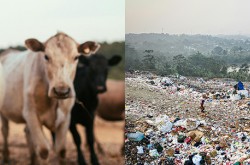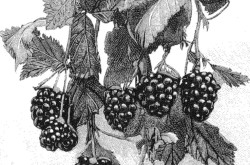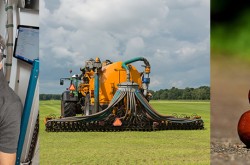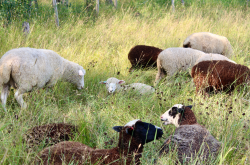Revolutionary cattle breeding that helped Alberta beef become a world leader
This article was originally written and submitted as part of a Canada 150 Project, the Innovation Storybook, to crowdsource stories of Canadian innovation with partners across Canada. The content has since been migrated to Ingenium’s Channel, a digital hub featuring curated content related to science, technology and innovation.
Roy Berg’s controversial cattle breeding research revolutionised Alberta’s beef industry. It was controversial because no one in 1955, was promoting cross-breeding beef cattle anywhere in the world. Berg knew beef production would dramatically increase with hybrid vigour and cross-breeding, and each generation thereafter would be stronger and more productive. Ten years later, he proved it, when his research at the University of Alberta eventually led to a 40% increase in cattle productivity, helping make Alberta the beef production world leader it is today.
The science behind the belief
As an animal geneticist Berg sought to improve fertility in females and growth in males, and knew that selective cross-breeding of beef cattle—passing on desirable traits from a variety of breeds and capitalizing on hybrid vigour—could improve production. In 1955, Berg’s hybrid concept caused uproar in Alberta, with ranchers believing crossbreeding would ruin their herds. Opposition to his research was so strong producers dubbed his cross-bred cattle ‘Berg’s bastards’ and ‘Roy Burgers.” There were even editorials denouncing Berg’s research; a group of cattle producers even tried to have him fired from the university.
Becoming one world’s most successful cattle breeding research operations
Berg bred two hybrid lines—the first was 30% more productive, the second was 40%. Within 10 years, Berg’s University of Alberta’s hybrid cattle outperformed the purebred herd. Thanks to Berg’s research, the university’s Kinsella Ranch became one of the most successful cattle breeding research operations in the world. It took Berg 10 - 15 years to convince the cattle industry of hybrid breeding’s merits and economic advantages. Eventually, with overwhelming evidence, cross-breeding became the norm in Alberta’s beef cattle industry.
Importance of beef to Alberta and Canada
Today, Alberta is Canada’s largest cattle producing province and produces almost 50% of all Canada’s beef. Beef cattle production is Alberta’s largest agricultural sector and contributes $12.7 billion to Alberta’s economy. (Alberta Beef). In 2014, the cattle industry contributed $18.7 billion to Canada’s GDP. (CDN Cattlemen’s Association).

















